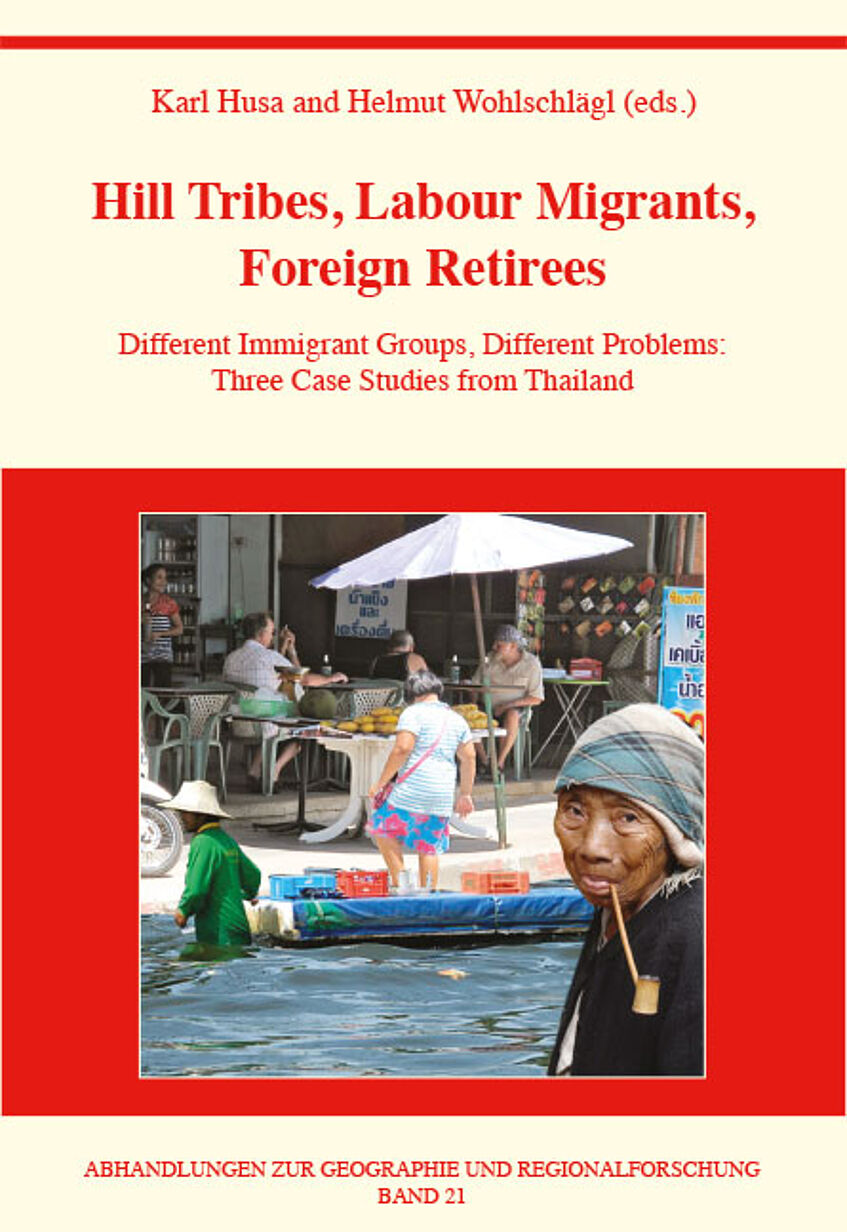ABHANDLUNGEN ZUR GEOGRAPHIE UND REGIONALFORSCHUNG • BAND 21

ISBN: 978-3-900830-88-5
Bestellung:
Tel. +43 / 1 / 4277 48603
E-mail: geographie@univie.ac.at
Preis:
EUR 30,- (für Studierende: EUR 25,–)
Karl Husa and Helmut Wohlschlägl (Eds.):
Hill Tribes, Labour Migrants, Foreign Retirees
Different Immigrant Groups, Different Problems: Three Case Studies from Thailand
Wien 2017, 266 Seiten
Many Countries in the Western hemisphere have been confronted with increased immigration of international labour migrants, economic refugees, and asylum seekers – many of which entered the country or are residing irregularly – for decades, but at the latest from the beginning of the 1990s. In countries of the Global South on the other hand, the discussion of spatial mobility had until the end of the 20th century almost exclusively focussed on rural-to-urban migration and the consequences of dynamic urbanisation. Since the beginning of the 21st century, however, socio-demographic change and economic transformations induced by globalisation have not been confined to the advanced economies of Europe and North America. As a consequence, many of the so-called “newly industrialising countries” have recently undergone a transformation from “sending” to “receiving” countries concerning migrants and are thus facing increasingly similar migration-related issues as the states of the Global North have. Debates about the “hot topic” immigration have now arrived in the midst of society in many newly industrialising countries.
A prime example of the emergence of immigration issues in developing countries is the Kingdom of Thailand. Against this background, the case studies in this volume focus on the following three immigrant groups of different origins, from different periods, with different reasons for migration, and with different integration issues: “established” immigrant groups (hill tribes), labour migrants, and finally, a third, new group of migrants, which differs markedly from the other two groups of immigrants in respect of origin as well as its demographic and economic situation: foreign retirees. As a consequence, related issues such as the marginalisation, integration, and vulnerability of migrants not only affect “traditional” immigrant groups like irregular labour migrants, but increasingly also “new” immigrant groups like long-stay tourists and retirement migrants.
